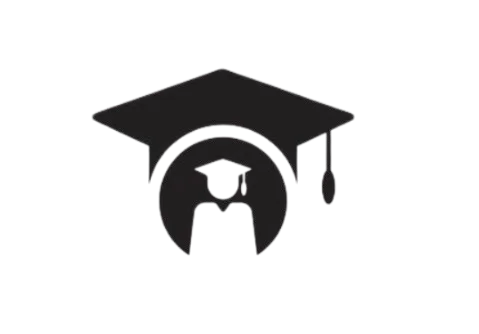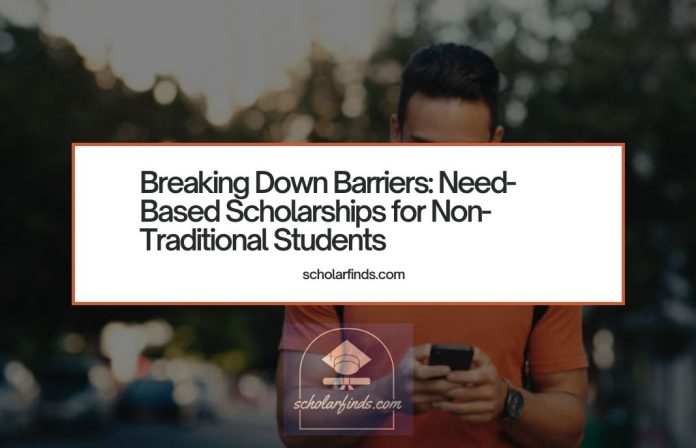Introduction
Breaking Down Barriers: Need-Based Scholarships for Non-Traditional Students – Higher education is not limited to recent high school graduates. Many individuals, whether working adults, single parents, or those returning to school after years in the workforce, are seeking to further their education. However, the cost of college can be a significant barrier. Fortunately, need-based scholarships are available to support non-traditional students, offering financial aid that makes pursuing education later in life more accessible. This guide highlights some of the top need-based scholarships designed specifically for non-traditional students.
Who Are Non-Traditional Students?
Non-traditional students typically include those who do not follow the traditional path of attending college immediately after high school. This category encompasses a diverse group of learners, including:
- Working Adults: Individuals balancing a job while pursuing higher education.
- Single Parents: Those who are raising children on their own while attending school.
- Returning Students: Individuals who are returning to college after a break, whether for personal, financial, or professional reasons.
- Military Veterans: Service members who are transitioning to civilian life and pursuing a degree.
- Part-Time Students: Those who attend college on a part-time basis due to work, family, or other commitments.
Need-Based Scholarships for Non-Traditional Students
There are numerous scholarships specifically designed to support non-traditional students. These scholarships take into account the unique challenges faced by adult learners, such as balancing education with work or family responsibilities. Here are some top need-based scholarships for non-traditional students:
1. Patsy Takemoto Mink Education Foundation Scholarship
The Patsy Takemoto Mink Education Foundation offers scholarships to low-income women, particularly single mothers, who are pursuing higher education. This need-based scholarship is designed to help women overcome financial barriers and achieve their educational goals.
- Eligibility: Women who are at least 17 years old, with minor children, pursuing education after a break.
- Award: Up to $5,000.
- Application Deadline: Varies annually, typically in the summer.
2. Jeannette Rankin Women’s Scholarship Fund
This scholarship is available to low-income women aged 35 and older who are pursuing an undergraduate degree or vocational training. The scholarship aims to empower women through education, helping them achieve financial independence and career success.
- Eligibility: Women aged 35 or older, U.S. citizens, with demonstrated financial need.
- Award: Varies, often around $2,000.
- Application Deadline: February 29, 2024.
3. Return2College Scholarship
The Return2College Scholarship is open to students of all ages, including those who are returning to school later in life. This scholarship is need-based and designed to support those pursuing higher education to advance their careers.
- Eligibility: U.S. citizens or permanent residents, 18 years or older, enrolled in college or planning to enroll.
- Award: $1,000.
- Application Deadline: January 31, 2024.
4. The Adult Students in Scholastic Transition (ASIST) Scholarship
Offered by the Executive Women International (EWI), the ASIST scholarship is intended for adult students facing economic, social, or physical challenges. This need-based scholarship provides financial assistance to those who are committed to improving their situation through education.
- Eligibility: Non-traditional students with financial need, including single parents and those re-entering the workforce.
- Award: Varies by chapter, often between $2,000 and $10,000.
- Application Deadline: March 2024 (varies by chapter).
5. College JumpStart Scholarship
The College JumpStart Scholarship is open to non-traditional students, including adult learners and those returning to school after a hiatus. This scholarship is need-based and rewards those who are committed to their educational goals.
- Eligibility: U.S. citizens or legal residents, high school seniors, college students, or non-traditional students planning to attend college.
- Award: $1,000.
- Application Deadline: October 17, 2023.
6. Federal Pell Grant
While not a traditional scholarship, the Federal Pell Grant is a significant source of need-based financial aid for non-traditional students. This grant does not need to be repaid and is available to low-income students pursuing their first undergraduate degree.
- Eligibility: Based on financial need as determined by the FAFSA, open to U.S. citizens or eligible non-citizens.
- Award: Up to $6,895 for the 2023-2024 award year.
- Application Deadline: Varies by academic year, but apply as early as possible after October 1st.
How to Apply for Need-Based Scholarships as a Non-Traditional Student
Applying for need-based scholarships as a non-traditional student involves a few key steps. Here’s how to maximize your chances of securing financial aid:
1. Complete the FAFSA
The first step in securing need-based aid is completing the Free Application for Federal Student Aid (FAFSA). This form is crucial for determining your eligibility for federal grants, including the Pell Grant, and for many state and institutional scholarships.
2. Research Scholarships
Spend time researching scholarships specifically targeted at non-traditional students. Use scholarship search engines, visit college financial aid offices, and explore community resources.
3. Prepare a Strong Application
Non-traditional students often bring unique experiences and challenges to their education. Use your application essays to highlight your life experiences, financial needs, and the reasons you are returning to school.
4. Meet Deadlines
Scholarship deadlines vary widely, so keep a calendar of application due dates and make sure to submit all required materials on time.
5. Seek Support
Don’t hesitate to reach out to your college’s financial aid office for guidance. Many schools have resources specifically for non-traditional students, including advising and scholarship opportunities.
Conclusion
Pursuing higher education as a non-traditional student comes with its own set of challenges, but financial barriers should not stand in your way. Need-based scholarships are available to help working adults, single parents, and those returning to school later in life achieve their educational goals. By exploring these scholarship options and taking advantage of the resources available, you can break down the financial barriers and invest in your future.



